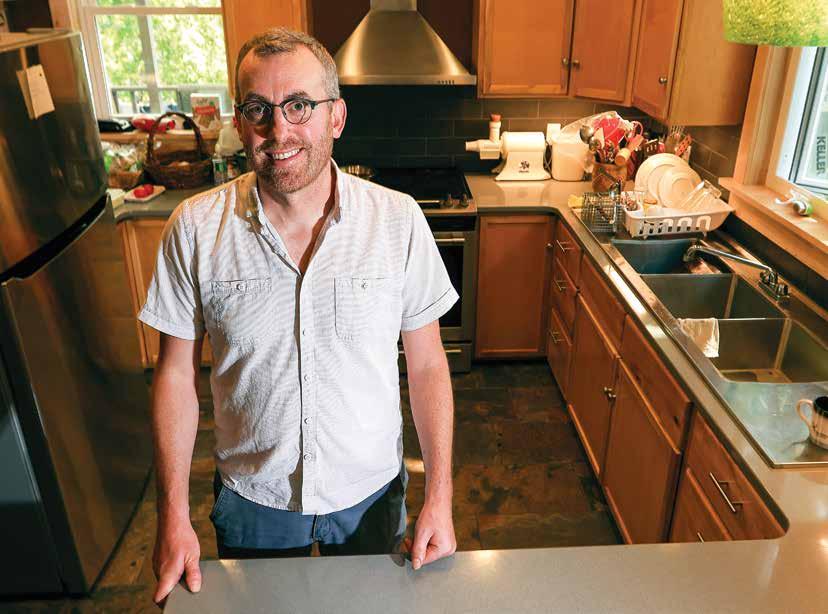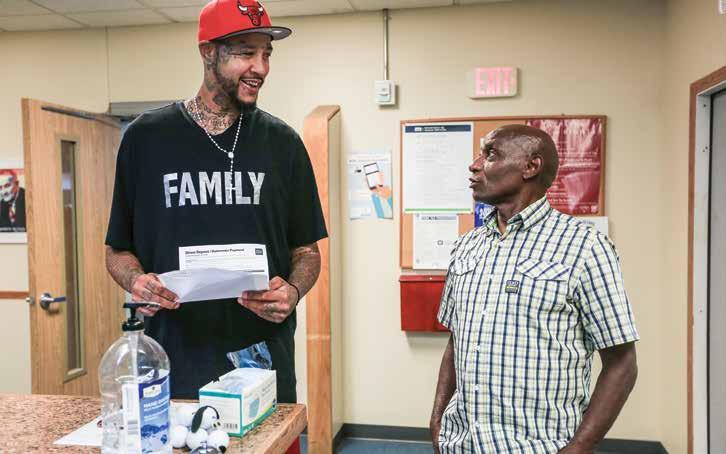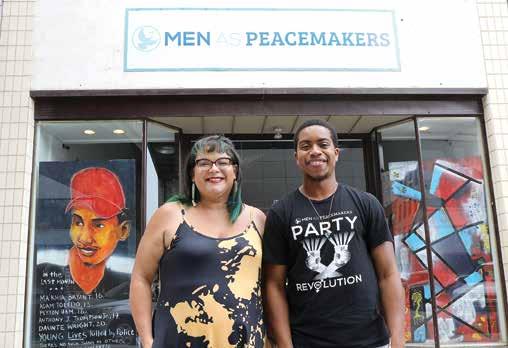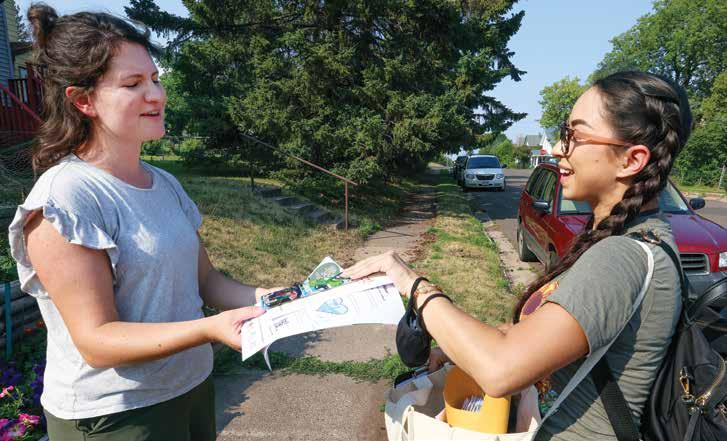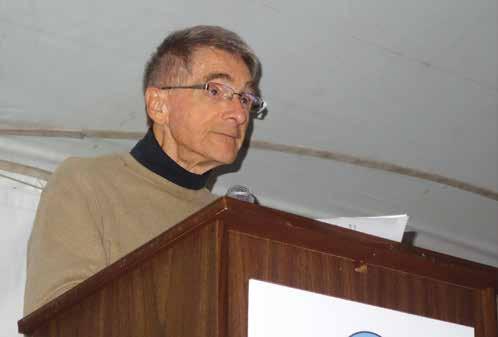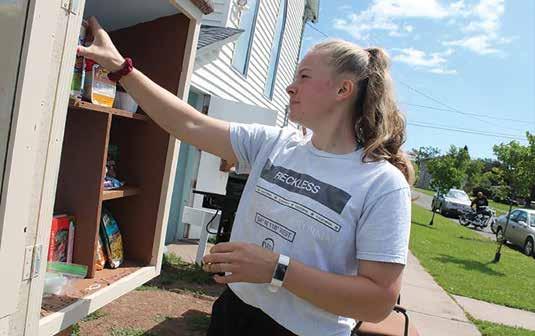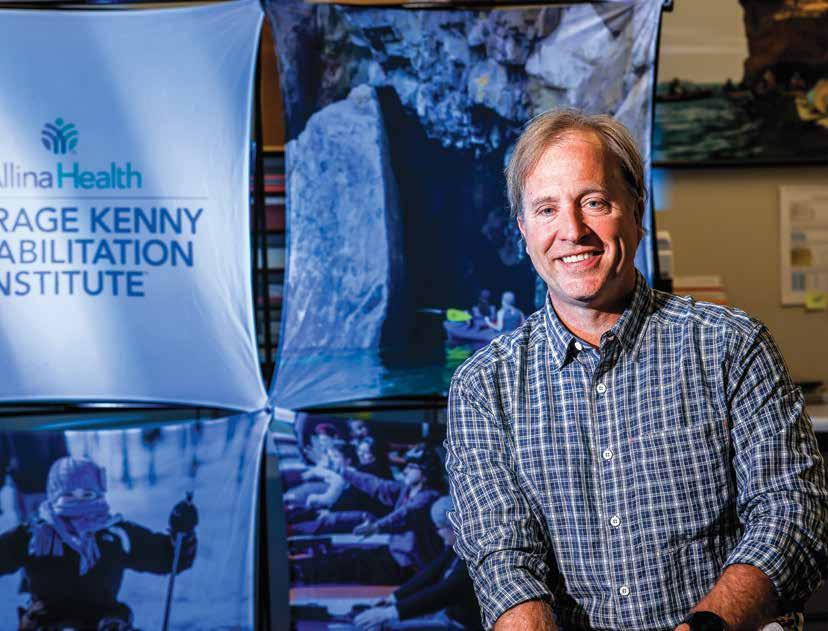
2 minute read
Center for Changing Lives lives up to its name
By Brady Slater
Inside the Center for Changing Lives in July, the halls were quiet.
It was early in the morning and the center continues to practice COVID-19 precautions, meaning most of its employees work from home unless they’re providing direct support for the young people up to age 24 who live at the center.

Built by Lutheran Social Services in 2017 for $9.1 million, the facility opened on 1422 E. Superior St. in the East Hillside neighborhood of Duluth, offering a bright new centerpiece for the ages-old problem of youth homelessness.
The Center for Changing Lives says it serves 880 young people annually with its trove of programs.
“We’re really here to help them build the skills and connections they need to be successful in life,” said Kelly Looby, Lutheran Social Services’ program director in youth, children and family services.
Looby guided the News Tribune on a tour of the Center for Changing Lives, which is defined by its second- and third-floor living areas. On the second floor are 10 apartments of permanent supportive housing, and, on the third, 10 rooms around a central living space and kitchen for transitional housing.
Both programs are filled. Transitional housing takes people for up to 18 months, while permanent supportive housing lasts longer than that, and encounters people experiencing more difficult situations. A lot of the time prior to landing in the Center for Changing Lives, the young people have been couch hopping, or living in a vehicle or tent.
“This could be the first time they’ve ever had a home,” Looby said, explaining that transitional housing is for young people with lower barriers to success.
A lot of the young people at the center have jobs, she said. There’s on-site behavioral health support, and even laundry rooms — emblematic of the wholescale approach.
“Our approach is a wraparound-of-services approach,” Looby said. “It’s helpful because there’s so many things happening out of one location.”
Services come with case management attached, helping young people connect to addiction services, food security, educational goals, income and employment opportunities and medical assistance.
“We’re here to help them get hooked up with all of the resources they need,” Looby said.
Among the host of programs offered by the Center for Changing Lives:
• Oh No! 18: prepares young people aging out of foster care into independent lives.
• Crisis Nursery: short-term care for infants through 12 years old for parents who are experiencing a housing crisis.
• Runaway and Homeless Youth Program: guides youth to safe housing options and resources.
• Supervised visitation: offering supervised parenting time.
• Teen Closet: offering new and gently used clothing.
• Together for Youth: supporting LGBTQI+ youth.
• Truancy Action Project: Connecting area schools to reach youth by removing barriers to attendance.
The Center for Changing Lives is a secure facility. Young people connect to it through the 211 coordinated entry phone system, or by encountering Lutheran Social Services’ youth shelter, Another Door, located downtown by Duluth Bethel.
“We can provide a continuum of services if we see youth at Another Door,” Looby said.
One of the benefits of Lutheran Social Services’ full-spectrum approach to addressing homelessness in young people: The people experiencing hard times don’t have to retell their stories over and over again.
“You’re trying to work through that, and to expose yourself to it one more time causes trauma,” Looby said. “By having youth work with the same staff across programming, you don’t have to do that.” u
A flier in the hall by apartments in the Center for Changing Lives tells tenants how to seek help paying rent if they need it. (Steve Kuchera / skuchera@duluthnews.com)




